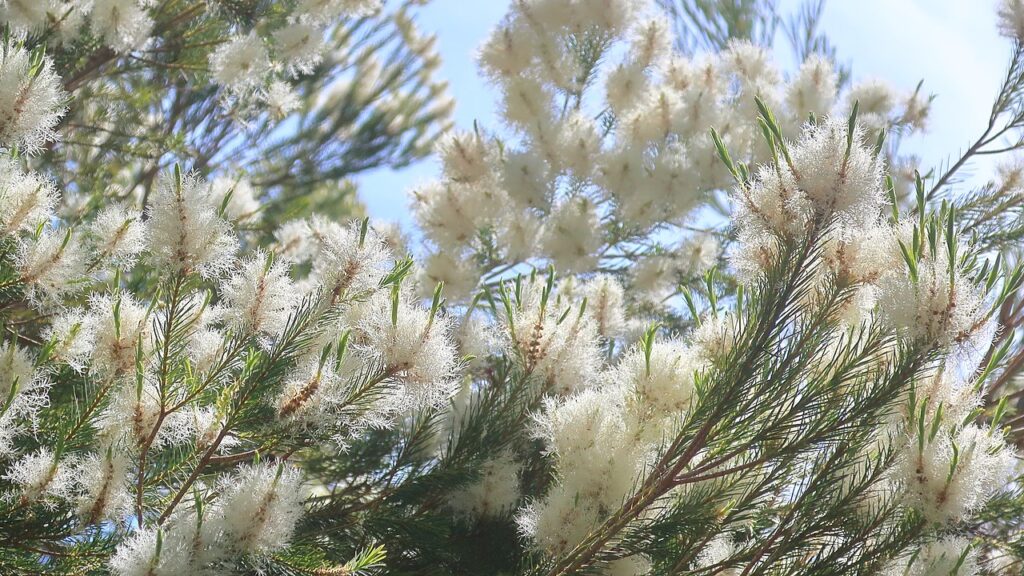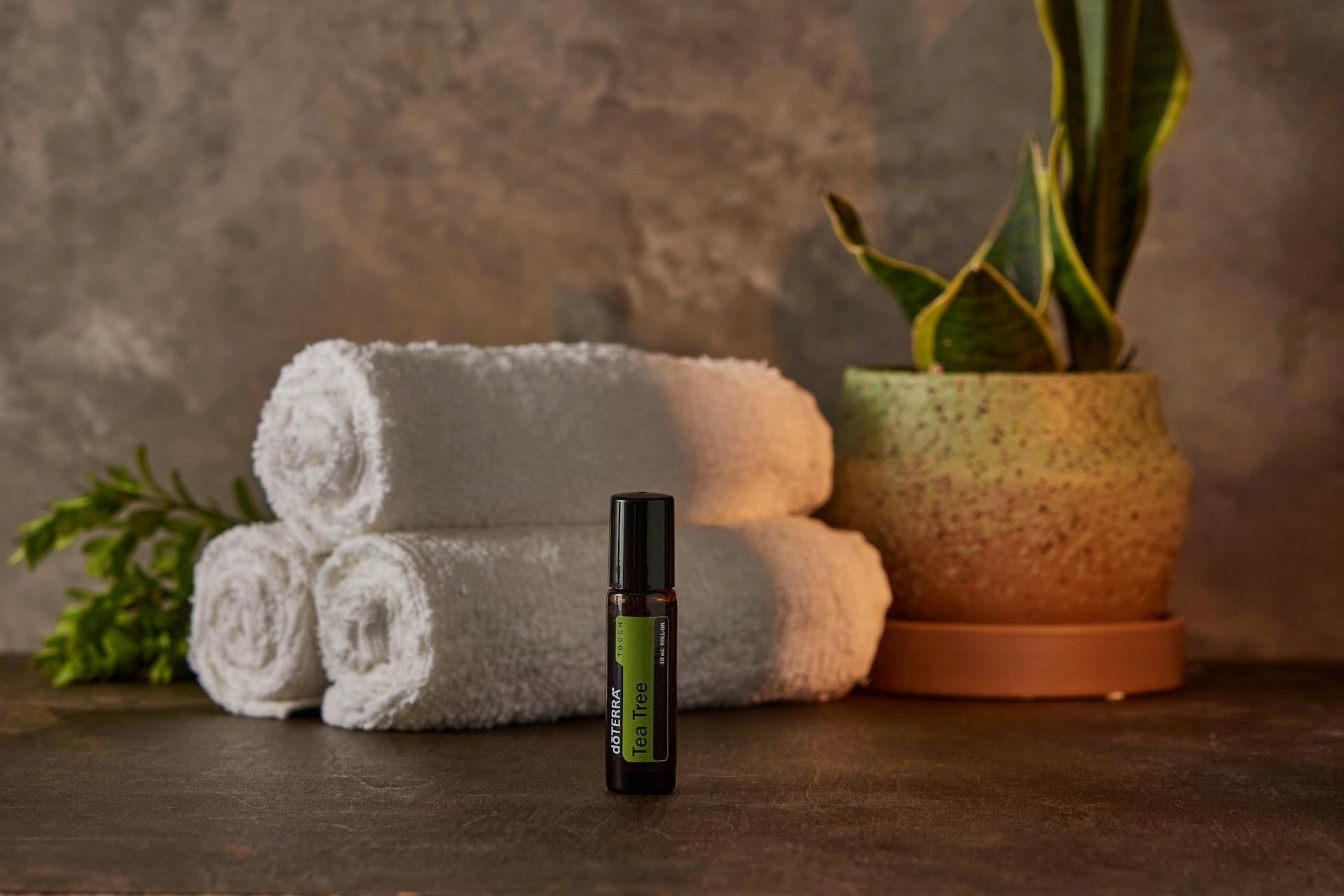We walk into beauty supply stores and may grab the first thing that says it’ll moisturize a scalp, hydrate hair and make it grow. Some consumers will flip the container around to see how many multi-syllabic words are in the ingredients instead of products we know and can recognize. Other consumers buy what they know and everyone from their beauticians to their mothers already use. Is it always the best choice for that hair type? Maybe, maybe not. But when it comes to tea tree oil products, there’s usually very little fuss. Still, what makes tea tree oil so universally effective when it comes to dry hair?

What Is the History of Tea Tree Oil?
Tea tree oil comes from steam distillation of tea tree leaves, which grow on the swampy southeast coast of Australia. The aboriginal people of Australia used tea tree oil as herbal medicine and as a germ killer. Over the years, the plant’s perks have spread worldwide and are used for countless reasons (acne, athlete’s foot, cuts, insect bites, lice, mite infection on eyelids, nail fungus).
Is Tea Tree Oil Safe To Use On Skin?
A limited amount of research confirms that tea tree oil may work on acne and athlete’s foot, but it’s not always compatible with all skin types. Some people may develop contact dermatitis (an allergic skin rash) or skin irritation where undiluted tea tree oil was used. Diluting tea tree oil is fairly simple: for every one to two drops of tea tree oil, add approximately 12 drops of argan oil, coconut oil or jojoba oil. Before using the oil as a shampoo, consider testing a small amount on the skin first to see how the body reacts.
Is Tea Tree Oil Safe To Use as a Shampoo?
For those who can confirm that they’re not sensitive to this hair treatment, tea tree oil for dry hair could be effective at keeping away dandruff. In one study from 2002, 126 male and female patients (aged 14 years and older) were randomly assigned to receive either 5% tea tree oil shampoo or a placebo, which was used daily for four weeks. The tea tree oil shampoo group showed a 41% improvement in dandruff severity and itchy scalps, and they had no adverse effects.
Tea tree oil shampoo has antifungal and antimicrobial properties that wash away excess oil, dead skin and chemical buildup. Because the ingredients unblock pores, dandruff has a more challenging time forming. The shampoo can also reduce the buildup of yeast in the scalp, another dandruff contributor.
Should Tea Tree Oil Be Mandatory for Wash Day?
There are so few studies confirming the benefits of tea tree oil, specifically tea tree oil shampoo, in the past two decades. That doesn’t mean it can’t work for some hair types. It just means to be cautious about filling up a shopping basket full of all things tea tree oil only to find out half don’t work as intended.
Anti-dandruff shampoos have some of those multi-syllabic ingredients mentioned above, including coal tar, selenium sulfide, zinc pyrithione, ketoconazole and salicylic acid. And while some consumers prefer to go with simpler products, popular brands like Head & Shoulders have been around since 1961. That brand completed 10 years worth of clinical trials before becoming a commercial product sold in stores.
Because everyone’s skin sensitivity varies, there is no universal decision for tea tree oil for dry hair. It may be a winning combination that makes scratchy heads a thing of the past. Or, it may not work at all or less effectively as commercial anti-dandruff shampoos. The simplest way to find out is to test both, and see how your hair and skin respond within a month’s time. Do not overuse. Give yourself time to see the effects, and proceed back to the beauty supply store with a more-informed take.
